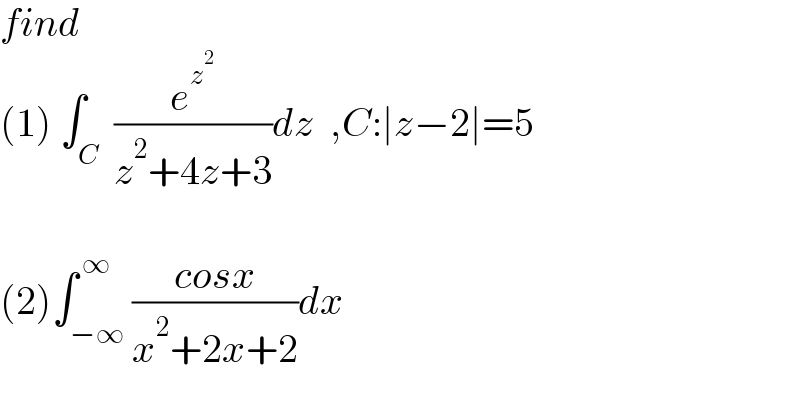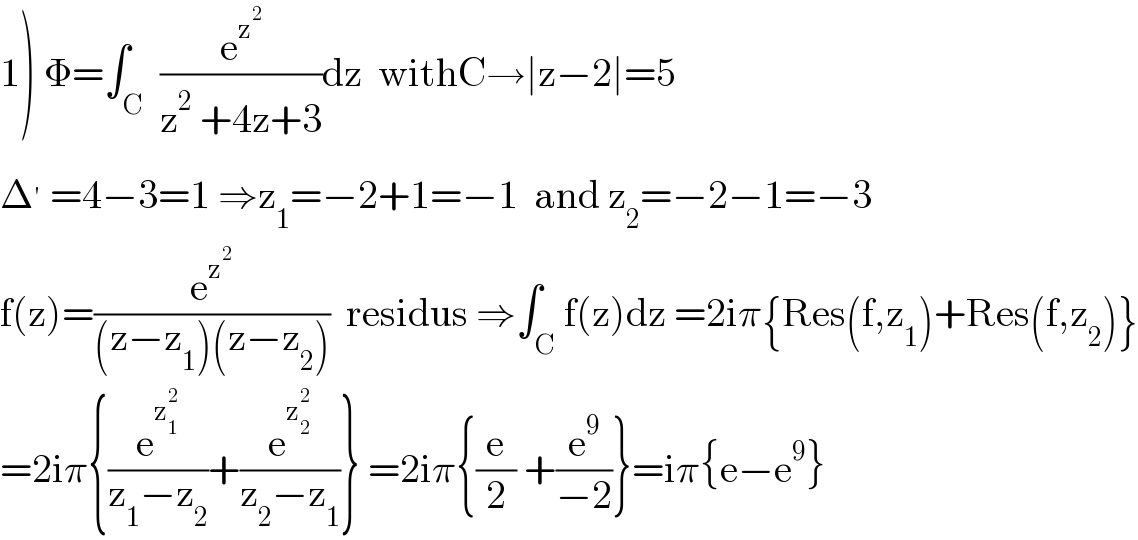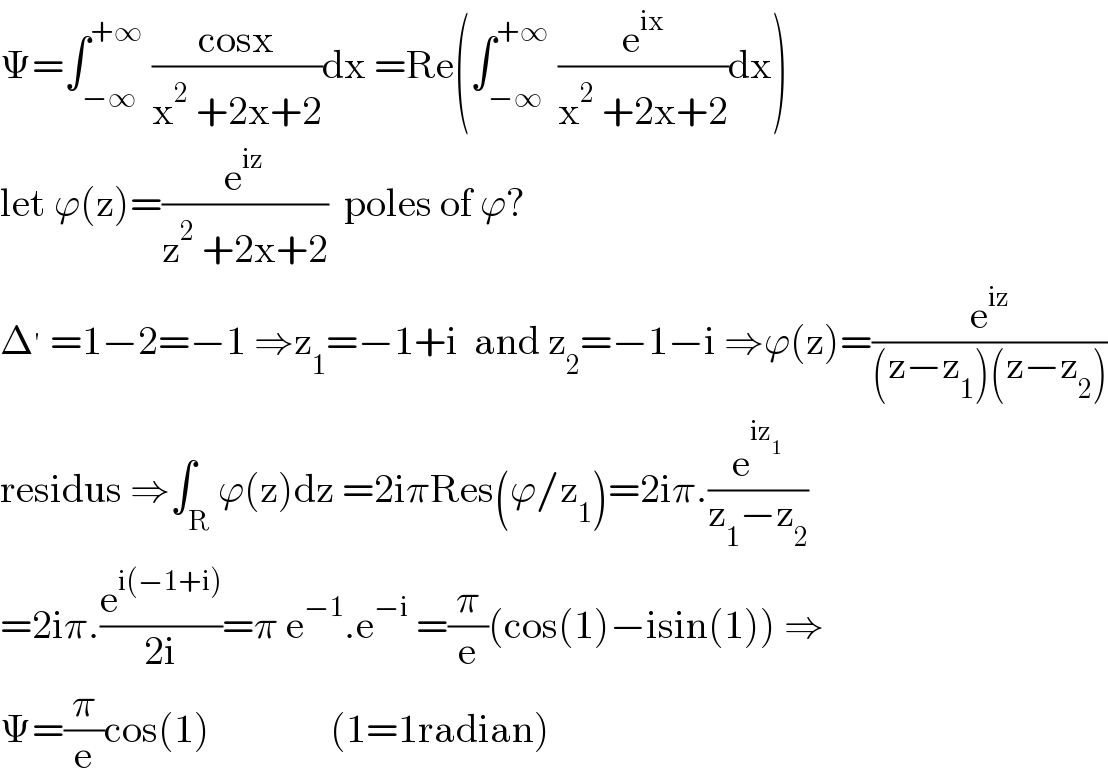
Question and Answers Forum
Question Number 146977 by tabata last updated on 16/Jul/21

Answered by mathmax by abdo last updated on 17/Jul/21

Answered by mathmax by abdo last updated on 17/Jul/21

| ||
Question and Answers Forum | ||
Question Number 146977 by tabata last updated on 16/Jul/21 | ||
 | ||
Answered by mathmax by abdo last updated on 17/Jul/21 | ||
 | ||
| ||
Answered by mathmax by abdo last updated on 17/Jul/21 | ||
 | ||
| ||